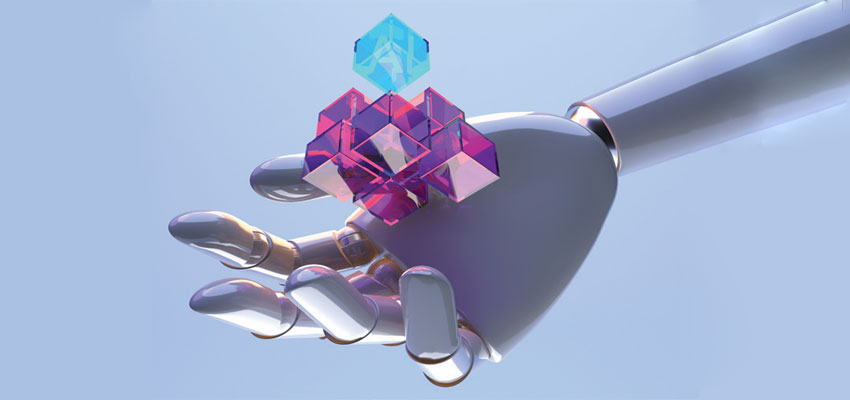AI – Beyond the hype

Artificial Intelligence (AI) offers immense potential for efficiency and innovation, streamlining tasks and enhancing decision-making. However, here’s an interesting instropection
Artificial Intelligence has been going through ups and downs ever since OpenAI launched ChatGPT, and the valuation of the company soared beyond 100 billion dollars. While veterans like Mustafa Suleyman, the AI Chief of Microsoft, argue that AI will be the most valuable companion (in Microsoft terms – Copilot) for all of us, sceptics have argued that Generative AI is nothing more than a good and speedy summariser of information and one should not expect more than that. Where lies the truth? Are we going to see AI scale or head towards a rude reality check?
First, a reality check by The Economist in a recent lead article said that the huge monies that have poured into leaders like Nvidia and OpenAI, may dry up, if the present big concerns about energy guzzling by AI hardware are not addressed. The stark reality is that the world cannot afford the energy cost to power the training and implementation of Large Language Models (LLMs) that currently form the core of AI, and the large funding of processors and models of today could be wrecked by this reality.
There are workarounds of course and new AI specialist chip companies may emerge, which compete with Nvidia and LLMs could give way or be supplemented by more narrow AI systems, which provide fewer but deeper solutions to problems within a domain. The computation costs which are today excessive and in many cases, comparable with LLM training costs, will have to be reduced by a constellation of AI models working in concert rather than the mega LLMs. This is the approach that China is expected to take if US embargoes deny them access to technology.
"Giving an AI tag to every existing and new object creates a disservice to the true potential of AI"
On a different note, my wife and I were privileged to attend a talk in Manhattan by Yuval Noah Harari, the author of best-selling books, Sapiens and Homo Deus, about his recent book Nexus. He spoke at length about the propensity of large AI to centralise data and perform analysis of behaviour and intent that can play into the hand of dictatorial regimes. He makes the point that the much-feared KGB in the much-hated Soviet Union and possibly in Putin’s Russia and the much-hated regimes of Mussolini, Stalin and Hitler would have benefitted greatly from these tools, which could have helped them to identify potential dissenters and traitors and eliminate them even before the thoughts and actions were fully crystallised in the minds of the perpetrators.
Harari also cautions about rogue algorithms that are the creation of some of the internet giant corporations, and mentions Myanmar as a case in point, where Facebook algorithms sensed that hate posts against the Rohingyas got more attention and more time spent on the platform and hence chose to propagate those much faster than healing voices. He argues that an algorithm designed with wrong or inadequate rules will have the potential to drive behaviour and initiate actions, which may not have been envisaged by the creators themselves.
On a more humorous note, let us understand that in the short term, giving an AI tag to every existing and new object creates a disservice to the true potential of AI. In his talk to a packed audience, Harari spoke about how a true AI espresso coffee making machine would behave. Through optical recognition, it already knows the preference of the person who is approaching the machine and through AI can also adapt the strength of each day’s coffee to their mood and health on that day. And, when both the machine and the person are in the right mood to experiment, the machine could make a “nextpresso” or “bestpresso” rather than the standard espresso.
Finally, with the emergence of personal AI companions on social media happening, it would be good to heed the prediction that an AI friend will probably be far better than your own partner or best friend because it can totally align the conversation and behaviour to your needs rather than wrestle with the baggage of your companion’s own mood if they were humans. So, will AI companions add to the isolation of humans from the real world?
One factor is for sure and that is, the discussions around AI are far from over and every new technology or idea emerging from the US and China (or even India with our recent Government push for democratising AI) will create new wave of discussions and arguments. It reminds me of my discussion with the Chief Technology Officer of premier US basketball association the NBA, earlier this year. He mentioned that while the real skill of the charging forward in a basketball game is to race down the court and evade defenders and shoot the basket, AI could do instant analysis of the previous games and predict the moves of each of the four players opposing the forward. This information could be automatically fed by neural networks to his brain and guide his moves. Would this be possible in our lifetime? Will it even be legal to build such applications? Governance is going to become as important as the evolutions and revolutions in technology. We are heading for interesting times for sure.